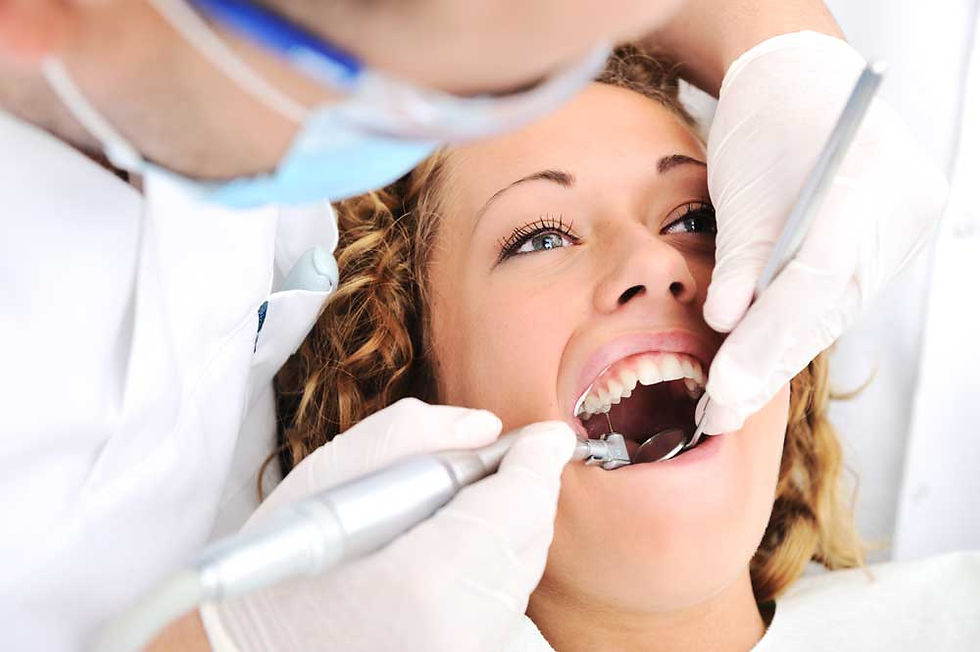Gingivitis: What Triggers It, And If I Have Gingivitis, What Should I Do?
- Laticia Gibson
- Dec 28, 2023
- 2 min read

Gingivitis happens when bacteria accumulate near the gum line and induce a disease that irritates your gums and causes them to redden, swell, and bleed. Don't give up if you have gingivitis or are concerned that you may. This Article advises how to avoid it going forward, so read on for more acknowledgment.
What Triggers Gingivitis?
Mouth bacteria are everywhere. There are "bad" bacteria that lead to conditions like cavities, poor breath, and gingivitis, and there are healthy bacteria that are necessary for a balanced microbiome.
On your teeth, plaque accumulates every day. This is an unseen, sticky film formed of germs that develop quickly—consistently brushing and flossing aids in controlling plaque.
Over time, tartar accumulates around your gums, contaminating them and leading to gingivitis.
Too much plaque on your teeth can cause it to harden into tartar, which attracts more bacteria.
Tartar will push your gums aside as it accumulates, causing them to recede.
Treatments Of Gingivitis
Maintaining proper oral hygiene and regular professional dental cleanings are the keys to gingivitis treatment that hasn't developed into more serious periodontal disease.
Flossing one time a day
Detouring lifestyle aspects, such as smoking, can cause gingivitis
Brushing twice a daytime
Obtaining an experienced dental cleaning every six months
This Will Include the treatment that will help you with the issues of gingivitis:
Scaling and root planing
This procedure smooths the tooth root's surface to reduce plaque adhesion and removes tartar and plaque from below the gum line.
Medication therapy
Antibiotics and antibacterial mouthwashes are examples of medications.
Procedure for periodontal pockets
A periodontist attaches gum tissue to the tooth to remove "pockets."
To preserve your oral health, you must see an urgent dental near me if you are experiencing any issues or emergencies.
How Can Gingivitis Be Prevented?
There are a few easy things to stop gingivitis. Make an essential dental appointment with your dentist every six months. Keeping your mouth clean is the other thing we recommend. This entails, at the very least, brushing your teeth gently for at least two minutes twice a day and flossing once a day.
What Indicates Gingivitis Symptoms?
Signs of gingivitis Include:
Swollen gums that are dark pink, magenta, or red
sensitive gums that may hurt when touched
Gentle gums
Bad breath or halitosis
Bleeding that happens when you floss or brush your teeth
Gums that recede
Gingivitis: Is it serious?
Gingivitis needs to be treated as soon as possible and with significant consideration. Bone loss is not a result of gingivitis. However, if left untreated, it can result in tooth loss and periodontitis, a far more dangerous gum disease.
Sum It Up
Everybody has microorganisms in their mouths. In the earlier phases of gum condition, gingivitis, bacteria can only be prevented by practicing good dental hygiene. Early detection and treatment of gingivitis can avoid irreversible damage to your gums and teeth. See a dentist, visit, or walk in dentists near me for dental checkups.


Comments